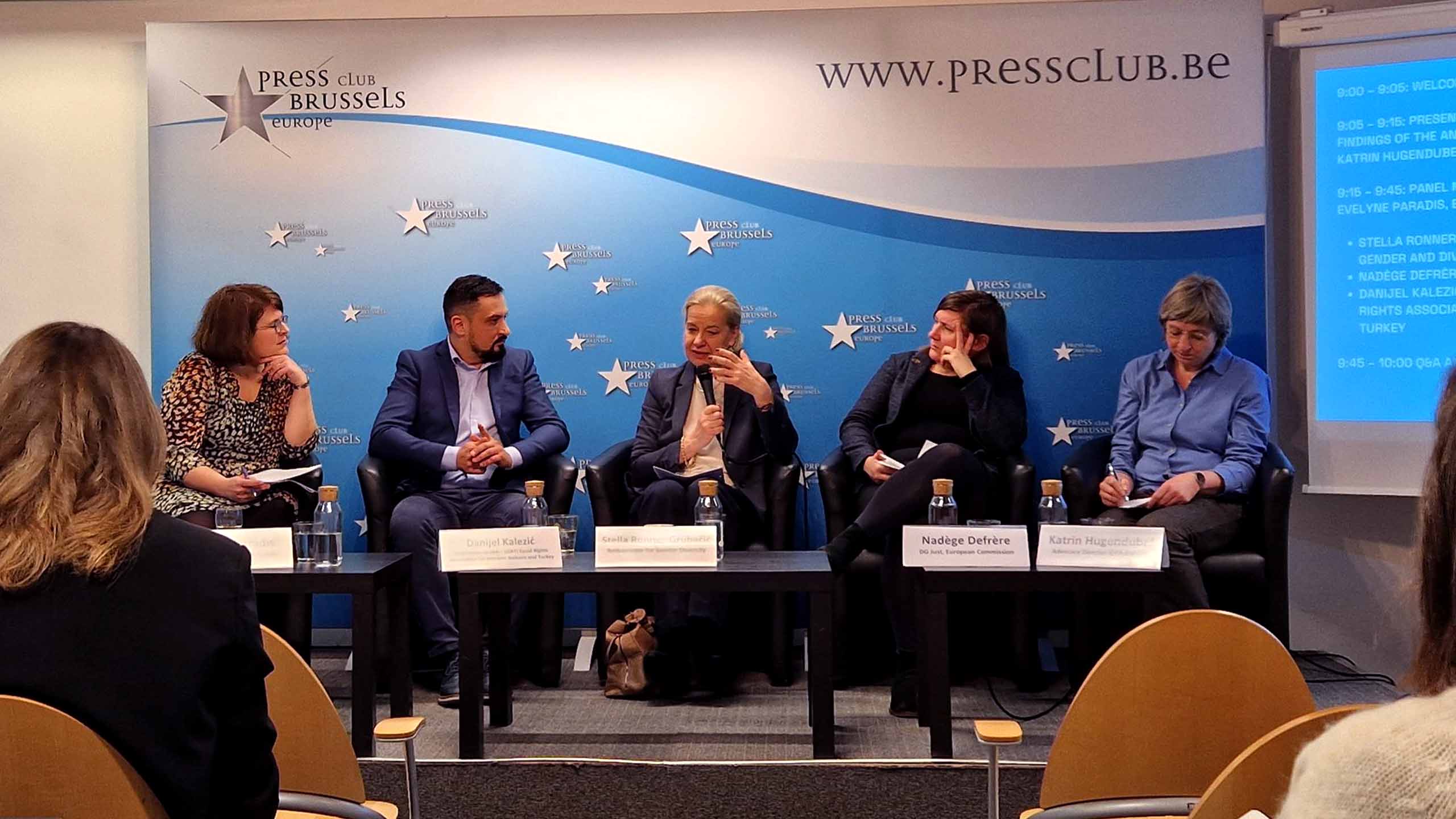An annual review of the human rights situation in 54 countries across Europe and Central Asia is painting a blood-curdling picture of the ferocious attacks against LGBTQ+ people in the region.
Researchers from the advocacy group ILGA-Europe say pervasive hate speech from politicians, religious leaders, right-wing organizations and media pundits has led to life or death consequences for members of the LGBTQ+ community.
“We have been saying for years now that hate speech in all its forms translates into actual physical violence,” ILGA-Europe’s executive director, Evelyne Paradis said in a statement. “This year, we have seen that violence become increasingly planned and deadly, leaving LGBTI people feeling unsafe in countries across Europe.”
“We have seen proof that anti-LGBTI hate speech is not just the words of marginal leaders or would-be autocrats, but a real problem with dire consequences for people and communities,” she added. “This phenomenon is not only in countries where hate speech is rife, but also in countries where it is widely believed that LGBTI people are progressively accepted.”
According to the group’s latest report which was released earlier this week, 2022 was the most violent year for queer and trans people in the region in over a decade. Researchers say there has been an unprecedented rise in deliberate attempts to kill LGBTQ+ people, including two terror attacks outside bars in Norway and Slovakia, which combined killed four people and left 22 people with serious injuries in June and October of 2022.
Researchers also suggest that a rise in transphobic hate speech from political and religious leaders, media pundits and organizations has led to a greater number of trans people being attacked and murdered. The report points to multiple instances, including the murder of Sabrina Houston a 37-year-old Black trans migrant woman who was stabbed to death in Estonia, the murder of a cis woman in Tbilisi, Georgia whose perpetrator perceived her to be trans, and the fatal attack of a trans man at a Pride event in Germany.
This data not only indicates a stark rise in violence against LGBTQ+ people, it also signals an increase in the severity of that violence. Some of the more disturbing stories that researchers uncovered include the “corrective rape” of lesbians in Central Asia, and the murder of Avaz Hafizli, a 24-year-old queer activist who was tortured and killed by his own relatives in Azerbaijan.
After presenting the report’s findings at a press conference in Brussels on Feb. 20, the European Union’s ambassador for gender and diversity, Stella Ronner-Grubačić told advocates: “The rise in violence goes together with the shrinking space for civil society, which is very closely linked to the amount of disinformation we see. These narratives go beyond the LGBTI community, they are anti-democratic and anti-human rights.”
Despite the recent rise of hate speech, ILGA-Europe says there have been more cases in the last year in which political officials, media pundits and other organizations have been successfully prosecuted under anti-discrimination legislation.
In April 2022, Samra Ćosović Hajdarević a member of parliament for Bosnia and Herzegovina was found guilty of hate speech after saying LGBTQ+ people should be “isolated” and “kept away from children.” The court’s ruling is considered a landmark victory by advocates as the first conviction since the country’s introduction of the anti-discrimination legislation in 2009.
In a separate incident last November, Hungary’s Media Council imposed a 400,000 HUF ($1,509 CAD) fine on Pesti TV, a national right-wing television channel, after broadcasters stated that trans people “deserve violence.” Similar fines have also been imposed on TV channels in Poland and against individuals in Italy, Lithuania and Norway.
While prosecutions on the basis of hate speech are on the rise, ILGA-Europe’s executive director, Evelyne Paradis says there’s still more to be done.
“While we are getting better at dealing with outcomes, the focus has to be on stopping hate speech in all its forms,” Paradis said in a statement. “[It] is not going to go away or diminish until politicians and policy makers understand that they have to get ahead of the problem.”
She adds, “In the current climate, progressive leaders must find effective ways to tackle hate speech in all its forms, instead of finding themselves on the back foot, expressing sympathy for the families of the needlessly murdered, or those who have taken their own lives, while hatred continues to be fostered and exploited.”


 Why you can trust Xtra
Why you can trust Xtra


